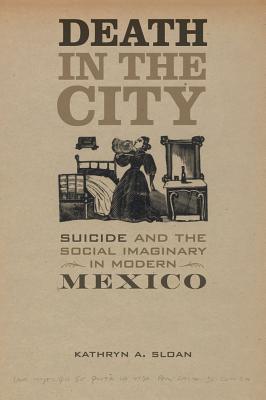At the turn of the twentieth century, many observers considered suicide to be a worldwide social problem that had reached epidemic proportions. This idea was especially powerful in Mexico City, where tragic and violent deaths in public urban spaces seemed commonplace in a city undergoing rapid modernization. Crime rates mounted, corpses piled up in the morgue, and the media reported on sensational cases of murder and suicide. More troublesome still, a compelling death wish appeared to grip women and youth. Drawing on an extensive range of sources, from judicial records to the popular press, Death in the City examines the cultural meanings of death and self-destruction in modern Mexico. The author examines approaches and responses to suicide and death, disproving the long-held belief that Mexicans possessed a cavalier response to death.












